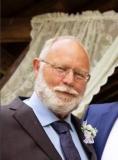Folders |
Portland Coaches Social Thursday Night Zoom Endures After Two YearsPublished by
Weekly Coaches' Zoom Calls That Began With The Pandemic Continue To Strengthen Bonds Of Friendship, Offer A Venue For Learning The Tricks Of The Trade, Serve As A Living Memorial By Doug Binder, DyeStat Editor Central Kitsap WA assistant track coach Jeremy Duplissey settled into a seat on the school bus after the completion of an afternoon dual meet, pulled out his phone and found a well-worn link to Zoom. He could have waited until he got home and probably wouldn't have missed much. But for Duplissey and a couple dozen other distance coaches across the country, Thursday evenings have become something to look forward to each week. A priority. They hold the promise of hearing a new idea, an old story, a pearl of wisdom or a not-so-fresh take. More than anything, they are a weekly gathering place where friends meet in a virtual space to talking about coaching and running. The Portland Coaches Social, a weekly Zoom call, hasn't skipped a single Thursday night in more than two years. Thor Esbensen, the cross country and track coach at Southwest Portland's Ida B. Wells, orginated the call and moderated it until enough time past that the conversation no longer required his steering. For the regulars -- like Central Catholic OR's Dave Frank and American Fork UT's Timo Mostert and Stillwater MN's Scott Christensen and Crystal Springs Uplands' Albert Caruana and Norwin PA's Brian Fleckenstein and Carin Marrs of University High (San Francisco) CA and a bunch of others -- countless hours spent on the Thursday night call have forged bonds that go far deeper than any of them imagined in 2020. Newbury Park's Sean Brosnan makes an occasional appearance and was on two weeks ago. "Without sounding cheesy, the people that come on the call have a legitimate passion for the sport and they just love it," Esbensen said. "Week after week for several hours a a time, talking about running, training, team culture. It's an unwavering passion for what they're doing. It's a passion for being better for their kids." The PCS call is reserved for Thursdays. Another weekly Zoom, based in Arkansas, is held on Mondays. Some coaches participate in both and others have gravitated toward one or the other. Sadly, over the past six months, two of the PCS regulars, long-time California coaches Al Berrin and Peter Brewer, have both died unexpectedly. (Neither death was COVID-related.) Their losses hit the group hard. Berrin, who coached at El Toro and left his imprint in locations all over the state across five decades in the sport, died on Nov. 3. Brewer, an eloquent English teacher and coach at Castro Valley, died Feb. 19. "It's amazing the connections you can make now with people you never met," Univeristy of Idaho distance coach Travis Floeck said. "Fifteen months went by and when I finally met those guys at the Olympic Trials last summer, it was like seeing family." The origins of the Zoom go back pre-pandemic. Esbensen and others in his group of coaching friends had been to Jay Johnson's clinic in Boulder and were already networking with people in other states. But he was also getting together on a regular basis with Frank, Lincoln's Eric Dettman and other local coaches in Portland to talk about raising the bar in the city. "We have some great coaches in the city of Portland, so we started getting around a table together and just talking. It was a family dinner kind of thing," Esbensen said. By the time the Coronavirus pandemic shut things down, the idea of staying in touch with the other coaches and talking things out -- just to pass the spare time -- was a natural step. "I thought it was a cool idea, alright fine, let's do it. But who was I at the time?' Esbensen said. "I just grabbed as many coaches' email addresses as I could find." Initially, he imagined a group of Oregon coaches talking about how to convince the OSAA to keep the state meet alive, or make alternate plans. But it quickly blew up into a wider group. Frank began reaching out to contacts in California, Washington and beyond. The calls, as Frank succinctly describes them, are all about "listening to great coaches talk about great training and great culture." Esbensen never thought it would last two years, but saw them as a way "to transition through the chaos." Over time, the need for socialization and connection drew together a group of like-minded coaches who wanted to share their experiences, ask questions, or simply listen. One of the highlights from the first year was the night Joan Benoit Samuelson joined the call. "That one, I'm still gushing over," Esbensen said. "Charlotte (Richardson) is good friends with her, and they had been on a podcast together. So (Benoit Samuelson) came on and said she'd stay for 45 minutes or so, and she stayed on for hours and shared stories." Mostert, one of the most successful high school coaches in the country during the Nike Cross Nationals era, started checking out the Monday night call out of Arkansas. Then Frank invited him to the Thursday call. "It was probably the end of April 2020, or early May," Mostert said. "We'd talk training but also during COVID it was nice just to have some human interaction. For a time in 2020, especially, there was zero human contact. I couldn't meet with my boys and posted everything for them to do online." As time moved by, even the coaches who were reluctant to reveal their training 'secrets' opened up. When coaches like Mostert willingly show all of their cards, defenses come down. "I had coached over the years off and on, but as my boys got into high school I wanted them to do well," Tualatin OR coach Dirk Lakeman said. "I was asking questions every time I came on the call and I couldn't believe they were willing to give me their secrets. Now, anytime there's someone asking questions, we all chime in and help that person. It's nice that we all like to teach and share." Fleckenstein is one of the few regulars in the Eastern time zone, which means he often hangs on until the wee hours of Friday morning. "I was on both Zooms and they came at time and place when we needed connection as much as the kids," Fleckenstein said. "To be honest, I was kind of starstruck at first. I mean, Timo and Dave Frank. "Sometimes we talk about running and sometimes not. But in some bizarre way, I know I've made connections I'll have for life."
No one expected that the weekly call would be this profound. When Berrin died, and then Brewer, the rest of the group kept their memories alive and reflected on what those two, specifically, had taught them. "They had been through 20 more years of cross country than Dave (Frank) or I had been through," Mostert said. "To gain that wealth of history and knowledge, it was a treat. It was amazing gleaning all that information from those two gentlemen." Berrin and Brewer both brought strong personalities and memorable points and counterpoints to the weekly discussions. On week there might be a feverish argument over the merits of negative splitting an 800. Another week might be filled with funny stories. "Al was part of the fabric of our sport," Frank said. "And he didn't have a problem telling the smartest (coach) or newest, that they were full of (b.s.). He made Thursdays better for all of us." Esbensen recalled how many times Berrin held discussions together when they began to wane. "He was one of us, but he was all of us," he said. "He was so positive and inclusive, but also a wild card. He was the glue of so many groups and a guy who coached so many places. He bridged gaps." Brewer's combination of English teacher and coach was evident in the eloquence with which he told stories and got his points across. He was an orator and debator of the first order. "Peter could go 8 to 10, or 15 minutes, and not be interrupted," Frank said. "His language was beautiful." Those monologues could be scorched-earth rants against soccer and club coaches, or elevate to higher planes of philosophy and literature. "Those guys were both powerful characters for us," Esbensen said. "Aggressive and awesome personalities. Two guys that were sages." They were two who stayed in the discussion right to the end. One Thursday night, and Friday morning, Esbensen stayed on the Zoom with Berrin and Brewer until 3:35 a.m. "Wild tangents," Esebensen recalled. "And then at one point I referred to them as 'you guys,' and they stopped me. It turns out they didn't really know each other before the Zoom." Berrin and Brewer spent decades coaching in the same, albeit massive, California section, and barely knew one another. Sometimes they took opposite sides of a debate. One of the legacies of the Portland Coaches Social is that they did meet, and share, with one another, and everyone else. This spring, as track and field has returned nearly back to normal, fewer coaches click the link on Thursday evenings. For many who do, it is a ritual. What may have peaked around 40 or 50 in the summer of 2020 has dwindled to 12-15 regulars. But it's not going away. For all new reasons, the forum remains open for familiar faces and those passing through. The 100th Thursday call in a row, and the two-year anniversary, have both come and gone in the past month. "The number of people has diminished, but the depth of the conversation has deepened," Frank said. More news |











 For life.
For life.